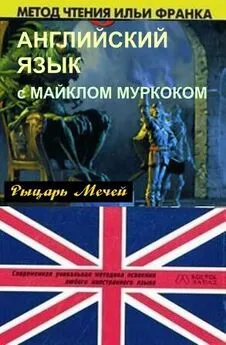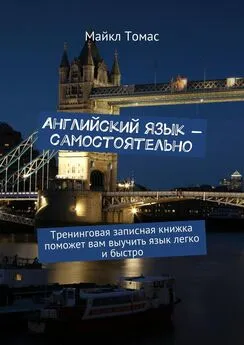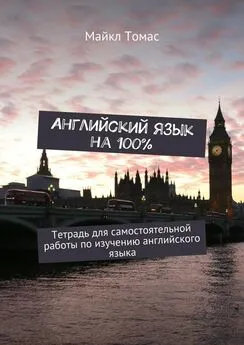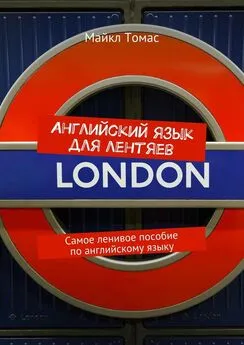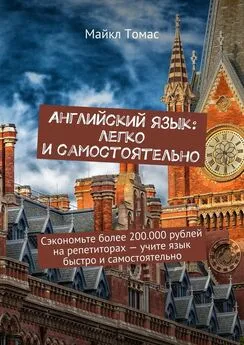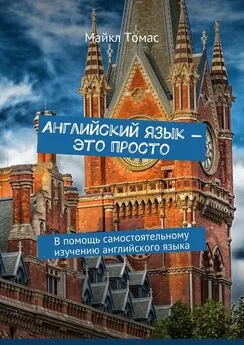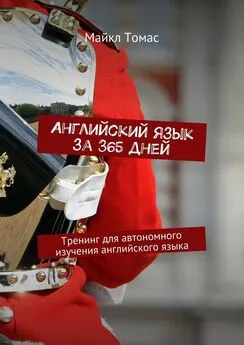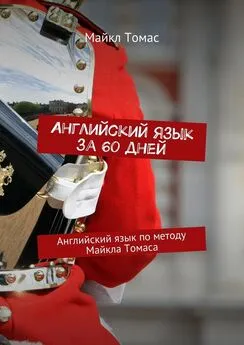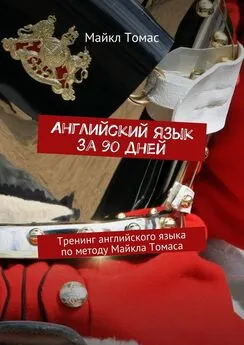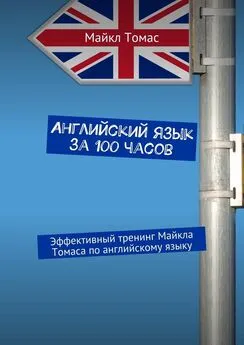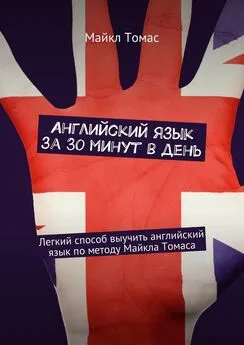Майкл Муркок - Английский язык с М. Муркоком
- Название:Английский язык с М. Муркоком
- Автор:
- Жанр:
- Издательство:неизвестно
- Год:неизвестен
- ISBN:нет данных
- Рейтинг:
- Избранное:Добавить в избранное
-
Отзывы:
-
Ваша оценка:
Майкл Муркок - Английский язык с М. Муркоком краткое содержание
В книге предлагается произведение "Рыцарь Мечей" Майкла Муркока, адаптированные (без упрощения текста оригинала) по методу Ильи Франка. Уникальность метода заключается в том, что запоминание слов и выражений происходит за счет их повторяемости, без заучивания и необходимости использовать словарь. Пособие способствует эффективному освоению языка, может служить дополнением к учебной программе. Предназначено для студентов, для изучающих английский язык самостоятельно, а также для всех интересующихся английской культурой.
Метод чтения Ильи Франка
Английский язык с М. Муркоком - читать онлайн бесплатно полную версию (весь текст целиком)
Интервал:
Закладка:
The city was surrounded by a high wall patterned with many geometric designs of a thousand colours (город был окружен высокой стеной, украшенной многочисленными геометрическими рисунками тысячи цветов). They entered it through a tall, narrow gate (они вошли в него через высокие узкие ворота), moved through a series of walls that were probably designed as a simple maze (преодолели множество стен, которые, вероятно, были расположены как простой лабиринт; series — ряд, множество; to design — задумывать; конструировать ), and began to ride along a broad avenue of blooming trees towards a palace that lay at the centre of the city (и поскакали по широкой улице, /обсаженной/ цветущими деревьями, ко дворцу, что находился в центре города; avenue — широкая аллея, обсаженная деревьями; широкая улица ).
discomfort [dɪsˈkʌmfət] thousand [ˈƟauz (ə) nd] avenue [ˈævɪnju:] palace [ˈpælɪs]
With some difficulty, Corum managed to swing himself into the narrow saddle and sit there, feeling extreme discomfort.
`Hoj! The leader waved to his men and turned his mount back towards the city.
`Hoj — ala!
The beasts jogged off, leaving the remaining warrior to make his way back to the city on foot.
The city was surrounded by a high wall patterned with many geometric designs of a thousand colours. They entered it through a tall, narrow gate, moved through a series of walls that were probably designed as a simple maze, and began to ride along a broad avenue of blooming trees towards a palace that lay at the centre of the city.
Reaching the gates of the palace, they all dismounted (подъезжая к воротам дворца, они все спешились) and servants, as thin and tall as the warriors, with the same astonished round faces, took away the mounts (и слуги, такие же тощие и высокие, как воины, с теми же удивленными круглыми лицами, увели седловых животных). Corum was led through the gates, up a staircase of more than a hundred steps, into an enclave (Корума повели через ворота, вверх по лестнице из более, чем сотни ступеней, в зал; enclave — анклав /территория, окруженная чужими владениями/; внутренняя зона ). The designs on the walls of the palace were less colourful but more elaborate than those on the outer walls of the city (рисунки на стенах дворца были менее красочными, но более изысканными, чем /рисунки/ на внешних стенах города). These were chiefly in gold, white and pale blue (они были в основном золотыми, белыми и бледно-голубыми). Although faintly barbaric, the workmanship was beautiful and Corum admired it (хотя и несколько варварское, мастерство исполнения/искусство было прекрасным, и Корум любовался им; faintly — слабо, едва; to admire — любоваться, рассматривать с восхищением ).
They crossed the enclave and entered a courtyard that was surrounded by an enclosed walk and had a fountain in its centre (они пересекли зал и вошли во внутренний двор, который был окружен крытой галереей, а в центре находился фонтан).
enclave [ˈenkleɪv] beautiful [ˈbju:tɪful] courtyard [ˈkɔ:tjɑ:d] fountain [ˈfauntɪn]
Reaching the gates of the palace, they all dismounted and servants, as thin and tall as the warriors, with the same astonished round faces, took away the mounts. Corum was led through the gates, up a staircase of more than a hundred steps, into an enclave. The designs on the walls of the palace were less colourful but more elaborate than those on the outer walls of the city. These were chiefly in gold, white and pale blue. Although faintly barbaric, the workmanship was beautiful and Corum admired it.
They crossed the enclave and entered a courtyard that was surrounded by an enclosed walk and had a fountain in its centre.
Under an awning was a large chair with a tapering back (под навесом находился большой трон с суживающейся кверху спинкой; chair — стул, кресло; трон ). The chair was made of gold and a design was picked out upon it in rubies (трон был сделан из золота, украшенный узором из рубинов; to pick out — отделывать, украшать ). The warriors escorting Corum came to a halt (воины, сопровождавшие Корума, остановились) and almost immediately a figure emerged from the interior (и почти тотчас вышла фигура из внутренних помещений). He had a huge, high head-dress of peacock feathers (у этого человека был огромный, высокий головной убор из павлиньих перьев), a great cloak, also of many brilliant feathers, and a kilt of thin gold cloth (большой = просторный плащ, тоже из множества сверкающих перьев, и юбка из тонкой золотой ткани). He took his place on the throne (он занял место на троне). This, then, was the ruler of the city (значит, он был правителем города).
The leader of the warriors and his monarch conversed briefly in their own language (командир воинов и его повелитель поговорили немного на своем языке; monarch — монарх, государь; briefly — кратко, сжато ) and Corum waited patiently, not wishing to behave in any way that these people would judge to be unfriendly (Корум ждал терпеливо, не желая поступить так = сделать что-либо, что эти люди расценили бы недружелюбным = сочли враждебным).
At length the two creatures stopped conversing (наконец эти два существа прекратили разговор). The monarch addressed Corum (правитель обратился к Коруму). He seemed to speak several different tongues until at length Corum heard him say, in a strange accent (видимо, он говорил на нескольких языках, пока наконец Корум не услышал, как тот сказал со странным акцентом):
rubies [ˈru:bɪz] interior [ɪnˈtɪ (ə) rɪə] feather [ˈfeðə] throne [Ɵrəun] monarch [ˈmɔnək]
Under an awning was a large chair with a tapering back. The chair was made of gold and a design was picked out upon it in rubies. The warriors escorting Corum came to a halt and almost immediately a figure emerged from the interior. He had a huge, high head-dress of peacock feathers, a great cloak, also of many brilliant feathers, and a kilt of thin gold cloth. He took his place on the throne. This, then, was the ruler of the city.
The leader of the warriors and his monarch conversed briefly in their own language and Corum waited patiently, not wishing to behave in any way that these people would judge to be unfriendly.
At length the two creatures stopped conversing. The monarch addressed Corum. He seemed to speak several different tongues until at length Corum heard him say, in a strange accent:
`Are you of the Mabden race (ты из народа мабденов)?
It was of the old speech of the Nhadragh, which Corum had learned as a child (это был старый язык надрагов, который Корум учил в детстве: «/будучи/ ребенком»).
`I am not (нет), he replied haltingly (ответил он, запинаясь).
`But you are not Nhedregh (но ты и не недрег).
`Yes — I am not — "Nhedregh (да, я не «недрег») ". `You know of that folk (ты знаешь об этом народе)?
`Two of them lived among us some centuries since (двое из них жили среди нас несколько столетий назад). What race are you (/из/ какого народа ты)?
`The Vadhagh.
The king sucked at his lips and smacked them (король пососал губы и чмокнул ими).
haltingly [ˈhɔ:ltɪŋlɪ] centuries [ˈsenʧərɪz]
`Are you of the Mabden race?
It was of the old speech of the Nhadragh, which Corum had learned as a child.
`I am not, he replied haltingly.
`But you are not Nhedregh.
`Yes — I am not — «Nhedregh». `You know of that folk?
`Two of them lived among us some centuries since. What race are you?
`The Vadhagh.
The king sucked at his lips and smacked them.
`The enemy, yes, of the Nhedregh (враг, да, недрегов)?
`Not now (теперь нет).
`Not now? The king frowned (король нахмурился).
`All the Vadhagh save me are dead (все вадаги, кроме меня, погибли), Corum explained (пояснил Корум). `And what is left of those you call Nhedregh have become degenerate slaves of the Mabden (а /те/, что остались от тех, кого ты называешь недрегами, стали выродившимися = жалкими рабами мабденов).
`But the Mabden are barbarians (но мабдены — варвары)!
`Now they are very powerful barbarians (теперь они очень могущественные варвары).
The king nodded (король кивнул).
`The enemy, yes, of the Nhedregh?
`Not now.
`Not now? The king frowned.
`All the Vadhagh save me are dead, Corum explained. `And what is left of those you call Nhedregh have become degenerate slaves of the Mabden.
`But the Mabden are barbarians!
`Now they are very powerful barbarians.
The king nodded.
`This was predicted (это было предсказано). He studied Corum closely (он внимательно рассматривал Корума). `Why are you not dead (почему ты не погиб)?
`I chose not to die (я решил не умирать).
`No choice was yours if Arioch decided (никакой выбор не был бы твоим = никто не посчитался бы с твоим выбором, если бы Ариох решил).
`Who is «Arioch» (кто такой «Ариох»)?
`The God.
`Which God?
`The God who rules our destinies (бог, который управляет нашими судьбами). Duke Arioch of the Swords (герцог Ариох Мечей).
`The Knight of the Swords (Рыцарь Мечей)?
predicted [prɪˈdɪktɪd] destiny [ˈdestɪnɪ] duke [dju:k]
`This was predicted. He studied Corum closely. `Why are you not dead?
`I chose not to die.
`No choice was yours if Arioch decided.
`Who is «Arioch»?
`The God.
`Which God?
`The God who rules our destinies. Duke Arioch of the Swords.
Читать дальшеИнтервал:
Закладка:
